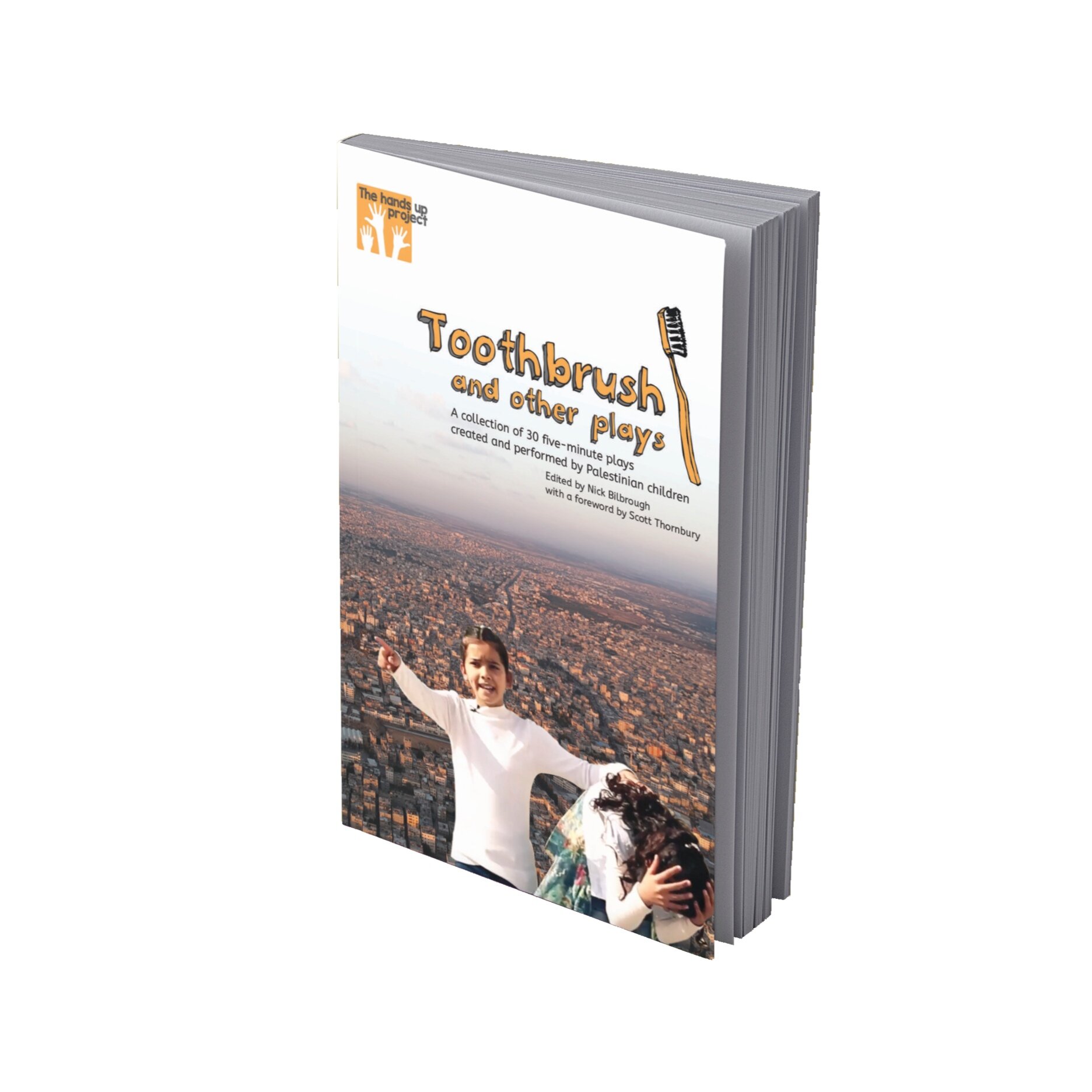Remote theatre for children in challenging circumstances
At the IATEFL conference in Brighton last week, and again at the Hands Up Project conference at Westminster University which immediately followed it, Rida Thabet and I gave a talk about the special type of drama that The Hands Up Project is enabling Palestinian and Syrian children to perform through Zoom to audiences around the world. We have termed this form of drama Remote Theatre.
Why remote theatre?
If theatre is being used to tell a story to the outside world, then a basic requirement is an audience. But if you live in a place like Gaza, or the Occupied West Bank, or Za'atari refugee camp in Jordan, where movement out or in (or even within) is extremely limited, then an audience made up of anyone who comes from anywhere apart from your immediate surroundings is very difficult to come by.
Performing theatre through simple video-conferencing tools like Zoom enables children in these contexts to reach audiences in my diverse contexts around the world - to HUP volunteers in South America, Europe and the Far East, but also to classes of school children or conference delegates almost anywhere in the world.
What are the features of remote theatre?
Remote theatre is rather different of course from normal theatre where both the actors and the audience occupy the same space. Remote theatre is one dimensional, in that the only view the audience have is what can been seen through the lens of the webcam. However this doesn't mean that it can't be engaging, and moving for the audience and the actors, providing that certain features are there. These may include:-
The actors being as close as possible to the webcam.
Speaking more slowly and clearly than is necessary in face-to-face theatre.
Making eye contact with the audience by looking directly into the green light of the webcam wherever possible.
Physicalising what is said wherever possible.
Having very clear entrances and exits. When actors aren't involved in a scene they should generally be out of the field of view of the webcam. There are interesting ways however in which they can make an entrance (for example appearing from underneath).
Many of these features can be seen in the snippet of video below, where a group of girls in Gaza are rehearsing (through Zoom) their interpretation of a story from English for Palestine called The wolf's shoes:
And they can also be seen in this great play written and performed by Dana Nawas, Rawan El Bahnasawi, Batool Mohsen, Nada El Khatib, and Raghad El Na'ami from Nuseirat Prep. A Girls School, Gaza with support from their teacher Mariam Abu Seifan. This play was performed live to great effect to everyone who came to our talk in Brighton.
There are many other great plays that were created by children in Palestine, which they would love to perform remotely to a class of kids of a similar age somewhere else in the world. You can access a video of many of these plays in this youtube playlist. If there is a particular theme that you are exploring with your students you may well find a play that relates to it. For instance..
human rights - Window onto the outside or When will the sun rise?
family relationships - Live your life or My mother in law is a troublemaker
plans for the future - I have a dream or Stolen dreams
Please get in touch here if you'd like to arrange something in your school.
Buy a copy of ‘Toothbrush and other plays’ from our online shop here.

